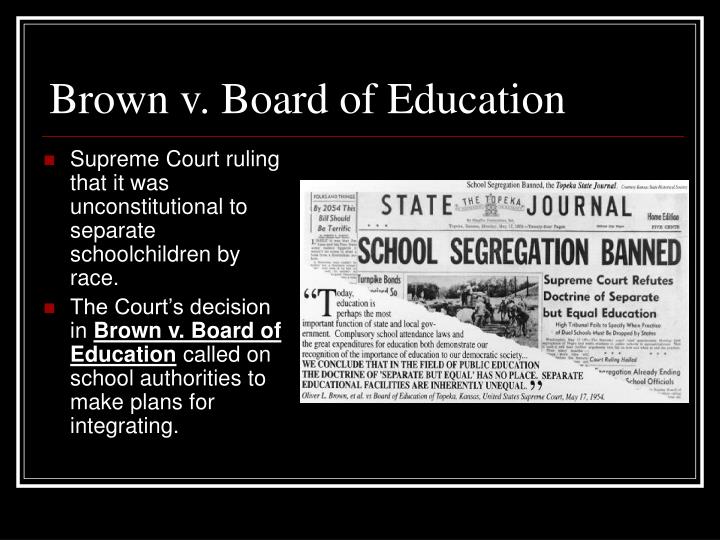

The authors ask: If black workers who were born in the South in the 1920s and 1930s had attended schools with the same measurable characteristics (for example, length of school year and students per teacher) as white schools, how much higher might their income have been later in life? To answer this question, the authors use individual-level data from the 1970 census to estimate the average labor market returns to school quality for southern-born black men.

As legal pressures mounted, southern state and local governments took the "equal" part of "separate but equal" more seriously. These disparities began to narrow twenty years before the Brown decision. In Alabama in 1910, for example, the average school year for white students was more than 30 days longer than for blacks, and there were approximately 12 more black students per teacher than white students per teacher. Ferguson (1896), the Supreme Court affirmed the right of states to enforce racial segregation "for the promotion of the public good." During the first third of the twentieth century, wide racial disparities in basic measures of school inputs, such as the length of the school year and students per teacher, were the norm in the South. The earnings gap between southern-born black men and non-southern-born black men in the same birth cohort narrowed by about 10 percent in the post-desegregation group. 11394), co-authors Orley Ashenfelter, William Collins, and Albert Yoon study the labor market implications of, first, providing more equal resources for black schools in the South and, later, bringing about school desegregation. Board of Education in School Equalization, Desegregation, and the Income of African-Americans (NBER Working Paper No.

The public profile of that landmark ruling overshadows the slow, long-term process that raised the quality of schooling available to southern black children.

Improving Health Outcomes for an Aging Population.Early Indicators of Later Work Levels, Disease and Death.Conference on Research in Income and Wealth.Boosting Grant Applications from Faculty at MSIs.Productivity, Innovation, and Entrepreneurship.International Finance and Macroeconomics.


 0 kommentar(er)
0 kommentar(er)
